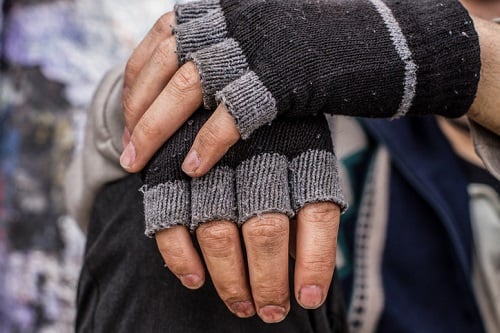Lack of affordable housing aggravates their situation

Domestic and family violence is one of the leading reasons women and children are pushed into homelessness in Australia, with over 121,000 Australians seeking help from specialist homelessness services in 2017-18, according to Mission Australia’s latest report.
The report Out of the shadows: Domestic and family violence, a leading cause of homelessness in Australia also revealed that 16% of women (1.5m) and 5.9% of men (528,800) experience violence from their partner since age 15.
“Despite being the focus of serious national policy and media attention over the past few years, it is unacceptable that domestic and family violence is at such high levels in Australia,” Mission Australia CEO James Toomey said in a statement.
“We need to do more to prevent, reduce and ultimately eliminate domestic and family violence if we are to have any chance of ending homelessness.”
Based on the 2017-18 Specialist Homelessness Services annual report, the number of domestic and family abuse victims who seek help from homelessness services has risen in recent years, but only 4% of them received long-term housing in 2018.
Housing stress tips victims
Toomey warned that “a severe shortage of social and affordable homes and increased levels of housing stress are tipping too many victim-survivors into unsafe and insecure living situations”.
“Everyone has the right to a safe and secure home. Yet there’s very little hope of addressing homelessness if there aren’t enough social or affordable homes for individuals and families to build a settled life in when escaping domestic and family violence,” Toomey said.
He added that although crisis and transitional housing is vital, many people will continue to be pushed into homelessness if there’s no long-term accommodation that’s an appropriate, affordable, safe place for them to live.
Up for combat
In its recommendation to combat the issue, Mission Australia included investments in prevention strategies, therapeutic interventions, addressing income support inadequacies, crisis and transitional accommodation and more social and affordable housing.
“No one should be forced to stay in a violent home to keep a roof over their own, or their child’s head. We cannot sit on the sidelines and watch this happen time and time again,” Toomey said.
“We need to make the tough, but essential changes needed to ensure there are a range of housing options including social and affordable homes, provide coordinated responses, improve economic security and redress gender imbalances.”



